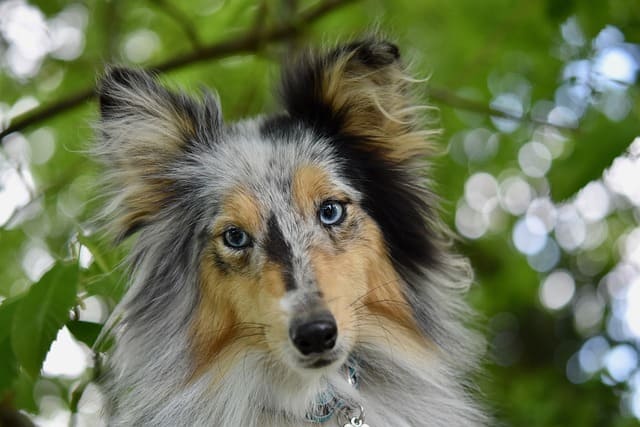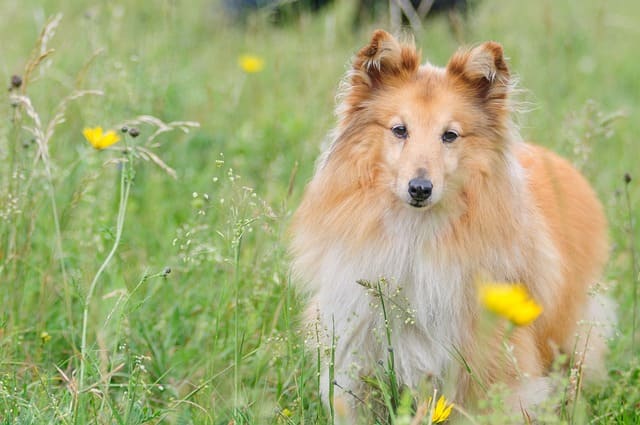Selecting the right dog breed is a significant decision for any potential dog owner. With numerous breeds to choose from, it’s essential to consider various factors, including the breed’s temperament, size, exercise needs, grooming requirements, and more. One breed that often captures the hearts of dog enthusiasts is the Shetland Sheepdog, or Sheltie, as it is affectionately known. This breed boasts numerous positive qualities, but it’s also important to be aware of any potential drawbacks.
In this guide, we’ll explore the Shetland Sheepdog breed in depth, discussing the pros and cons of bringing one of these intelligent and charming dogs into your life. Whether you’re a first-time dog owner or an experienced canine enthusiast, this information will help you make an informed decision about whether the Sheltie is the right breed for you.
Pros of Owning a Shetland Sheepdog

Let’s start by highlighting the many positive aspects of owning a Shetland Sheepdog:
1. Intelligence
Shetland Sheepdogs are renowned for their exceptional intelligence. They consistently rank among the smartest dog breeds, which makes them highly trainable and quick learners. If you enjoy teaching your dog new tricks or engaging in canine sports like agility or obedience, a Sheltie will be a willing and adept student.
2. Loyal and Affectionate
Shetland Sheepdogs are known for their loyalty and affection toward their families. They form strong bonds with their owners and thrive on companionship. They are often described as “velcro dogs” because they love to be by your side and enjoy cuddling and physical affection.
3. Good with Children
Shelties are generally good with children. They are patient, gentle, and protective, which makes them excellent playmates and companions for kids. Their sensitivity and intelligence allow them to adapt their playstyle to suit the child’s age and energy level.
4. Vigilant Watchdogs
These dogs have excellent watchdog instincts. Shetland Sheepdogs are naturally alert and attentive to their surroundings. They will quickly notice any unusual activity or potential threats and will not hesitate to bark to alert their owners.
5. Playful Nature
Shetland Sheepdogs have a playful and fun-loving side. They enjoy engaging in games and activities that provide both mental and physical stimulation. Their agility and intelligence make them well-suited for various dog sports and activities.
6. Sensitivity and Empathy
Shelties are highly sensitive to their owners’ emotions. They can often sense when their family members are upset or in distress, and they offer comfort and support. Their empathetic nature makes them excellent emotional companions.
7. Good for Apartment Living
Despite their herding background, Shetland Sheepdogs can adapt to apartment living, provided they receive sufficient exercise and mental stimulation. Their smaller size makes them well-suited for smaller living spaces.
8. Easy to Groom
While Shetland Sheepdogs have a luxurious double coat, they are relatively easy to groom. Regular brushing helps manage shedding, and their coat doesn’t mat as easily as some other long-haired breeds. They are also known for keeping themselves clean, exhibiting cat-like grooming behavior.
9. Versatile
Shetland Sheepdogs are versatile dogs that can excel in various roles, including family pets, therapy dogs, and working dogs. Their adaptability and trainability make them suitable for various lifestyles and preferences.
10. Good Health
When bred responsibly, Shelties are generally healthy dogs. Regular veterinary check-ups and a well-balanced diet can help maintain their health and well-being.
11. Beautiful Appearance
The Shetland Sheepdog’s appearance is undeniably beautiful. Their double coat, expressive eyes, and elegant posture give them a striking and refined appearance that captivates many dog lovers.
12. Herding Instincts
If you have a farm or livestock, a Shetland Sheepdog’s herding instincts can be a valuable asset. They can help manage and control livestock, thanks to their intelligence and natural herding abilities.
Cons of Owning a Shetland Sheepdog

While Shetland Sheepdogs have many wonderful qualities, it’s important to be aware of the potential challenges and drawbacks of owning this breed:
1. Energy and Exercise Needs
Shetland Sheepdogs are active and energetic dogs. They require regular exercise and mental stimulation to prevent boredom and destructive behaviors. If their exercise needs are not met, they can become restless and unhappy.
2. Herding Behavior
Due to their herding background, Shelties may display herding behaviors. This can include nipping at heels, barking, or attempting to guide people or other animals. While this instinct can be harnessed for positive activities like agility training, it can be a nuisance if not properly managed.
3. Barking Tendency
Shetland Sheepdogs are vigilant watchdogs, and as such, they may bark to alert you to anything they perceive as a potential threat. While this can be an advantage, excessive barking can become a problem, especially in an apartment or close living quarters.
4. Sensitivity
While sensitivity is a positive trait in many ways, it can also be a drawback. Shelties can be sensitive to changes in their environment, loud noises, or tension in the household. This sensitivity can lead to anxiety or fear in some situations.
5. Reserved with Strangers
Shetland Sheepdogs are known for being reserved with strangers. They may take time to warm up to new people and can sometimes appear aloof or distant when first meeting them. While this is part of their protective nature, it may not suit individuals looking for an overtly friendly or outgoing dog.
6. Need for Mental Stimulation
In addition to physical exercise, Shetland Sheepdogs require mental stimulation. Their intelligence means they can become bored easily if not mentally engaged. This boredom can lead to destructive behaviors.
7. Grooming
While Shelties are relatively easy to groom compared to some other long-haired breeds, they do require regular brushing to manage shedding. Their double coat can shed heavily, especially during seasonal changes.
8. Prone to Hereditary Health Issues
Some Shetland Sheepdogs can be prone to hereditary health issues such as Collie Eye Anomaly (CEA), hip dysplasia, and thyroid disorders. It’s essential to choose a responsible breeder who performs health screenings to reduce the risk of these conditions.
9. Potential for Separation Anxiety
Shetland Sheepdogs can be prone to separation anxiety, which means they may become anxious or distressed when left alone for extended periods. They thrive on companionship and may not do well in homes where they are left alone frequently.
10. Herding Behavior with Children
While Shelties are generally good with children, they may try to herd them by nipping at their heels or attempting to corral them. This behavior, although not aggressive, can be alarming to children and may need to be managed and redirected.
11. Vocalizations
In addition to barking, Shetland Sheepdogs may engage in vocalizations, including howling and whining. This can be triggered by various emotions or stimuli and may be more pronounced in some individuals.
12. Not Ideal for First-Time Dog Owners
While Shetland Sheepdogs are intelligent and trainable, their sensitivity and energy levels can be challenging for first-time dog owners. They require consistent training, socialization, and a structured routine, which may be overwhelming for inexperienced dog owners.
Is a Shetland Sheepdog Right for You?

Deciding whether a Shetland Sheepdog is the right breed for you depends on your lifestyle, preferences, and ability to meet their needs. Here are some key considerations to help you determine if a Sheltie is a suitable fit for your household:
Ideal For:
- Active Individuals or Families: Shetland Sheepdogs are an excellent choice for individuals or families who are active and enjoy outdoor activities. They are well-suited for hiking, running, and dog sports.
- Experienced Dog Owners: While not exclusive to experienced dog owners, Shelties may be better suited for those with some knowledge of canine behavior and training. Their intelligence and sensitivity require a skilled and patient approach to training.
- People Who Enjoy Obedience Training: If you appreciate training and teaching your dog new commands and tricks, a Shetland Sheepdog will be a rewarding companion.
- Families with Children: Shelties are generally good with children, making them a great addition to family households.
Not Ideal For:
- Inactive or Sedentary Individuals: If you lead a sedentary lifestyle and prefer minimal physical activity, a Sheltie may not be the best choice due to their high energy levels.
- People with Limited Time for Exercise and Mental Stimulation: Shetland Sheepdogs require daily exercise and mental stimulation. If you have a busy schedule and cannot meet these needs, another breed may be more suitable.
- Individuals with Little Patience for Training: Shelties thrive on consistent and positive reinforcement-based training. If you lack the patience for training and behavior management, you may find their sensitivity and energy challenging.
- Those Who Want a Low-Maintenance Dog: While Shelties are relatively easy to groom, their grooming needs should not be overlooked. If you prefer a low-maintenance dog with minimal shedding, this breed may not be the best choice.
In conclusion, Shetland Sheepdogs are wonderful companions with many positive traits, but they also come with some challenges. If you are willing to invest time in their training, exercise, and socialization, and if you appreciate their intelligence, loyalty, and affection, a Sheltie can be a highly rewarding addition to your family. However, it’s crucial to be aware of their needs and potential drawbacks to ensure a harmonious and fulfilling relationship with this charming breed.
